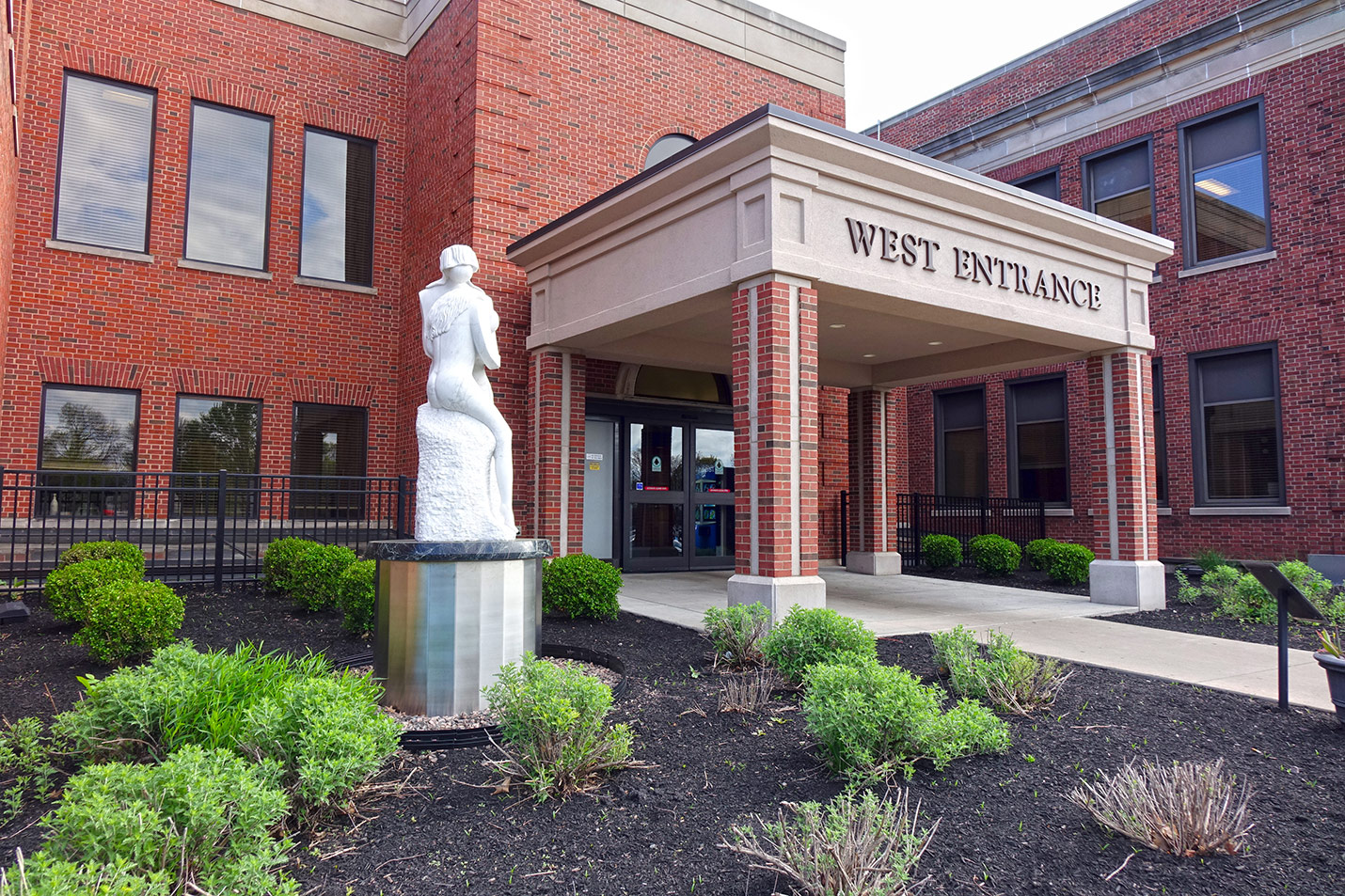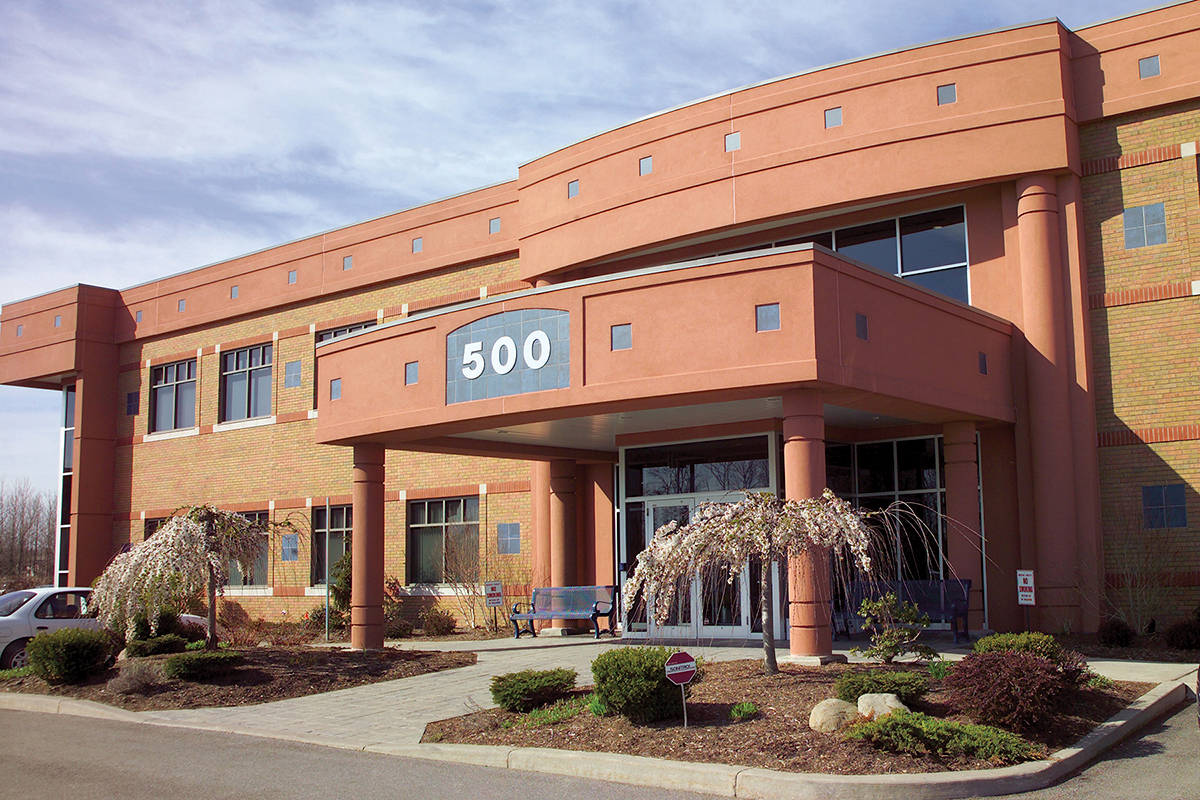Uterine Fibroids
Make Appointments & Get Care
What are Uterine Fibroids?
Fibroids in the uterus are firm, dense growths that are extremely common. Most people with fibroids in the uterus don’t have symptoms and most fibroids aren’t large enough to be discovered during a medical exam. In almost all cases, fibroids are benign (non-cancerous).
The cause of fibroids is not completely understood. You may be at greater risk of developing fibroids if you're pregnant or have been pregnant, if you're older than 30, or if you have a family history of fibroids.
In some cases, fibroids can cause symptoms such as heavy periods, bleeding in between periods, and abdominal pressure or pain. When fibroids grow in certain areas of the uterus, fertility and pregnancy can be affected.
Ready for an Appointment?
Call (585) 487-3350UR Medicine's Treatments for Uterine Fibroids
When you see your GYN provider for routine care, he or she will ask questions about possible symptoms and will perform an exam that includes checking the size and shape of the uterus. If the uterus feels enlarged or has an irregular shape, you might have fibroids.
You might be referred for an ultrasound or MRI of the uterus. This will show how many fibroids you have, where they are located, and their size.
If you’re experiencing heavy or irregular periods, having difficulty getting pregnant, or if you have had pregnancy losses, your GYN provider may recommend evaluation for fibroids. They may also recommend a biopsy of the lining of the uterus.
Treatment options for fibroids include:
- Medications or treatments such as birth control pills, anti-inflammatory pain relievers, or an IUD to help control bleeding and pain.
- Medications to shrink fibroids.
- Uterine fibroid embolization (UFE), also known as uterine artery embolization, a procedure that blocks the blood flow to a uterine fibroid tumor, causing the tumor to shrink and eventually disappear.
- Hysteroscopy with removal of fibroids, a surgical procedure where a small camera is inserted through the cervix into the center of the uterus and small instruments are used to remove fibroids.
- Myomectomy, a type of surgery to remove fibroids from the uterus without removing the whole uterus. This can be done laparoscopically (through several small incisions on the abdomen, using a camera and small instruments) or through a larger incision in the abdomen to directly reach and operate on the fibroids.
- Hysterectomy, a surgical procedure that removes the entire uterus. This can also be done laparoscopically or through a larger incision.
What Sets Us Apart?
The providers in UR Medicine Obstetrics and Gynecology are women’s health experts who are actively engaged in supporting women's health, including patient care, research, and education.
Our subspecialty-trained OB-GYNs can manage complicated cases for people with extremely large fibroids, pelvic pain conditions, or medical problems that may increase the risk of surgery for fibroids.
We also offer surgical consultation and care for people pursuing fertility care complicated by fibroids.
Locations
View All LocationsWe serve you in the Rochester metropolitan area and surrounding region.
View All Locations9 locations
Lattimore Medical Center
125 Lattimore Road, West Entrance, Suite 258
Rochester, NY 14620
500 Red Creek Drive, Suite 120
Rochester, NY 14623
Red Creek (Calkins Corporate Park)
500 Red Creek Drive, Suite 220
Rochester, NY 14623
990 South Avenue, Suite 103
Rochester, NY 14620
Perinton Medical Center
800 Ayrault Road, Suite 100
Fairport, NY 14450
2255 South Clinton Avenue
Rochester, NY 14618
990 South Avenue, Suite 105
Rochester, NY 14620
Red Creek (Calkins Corporate Park)
500 Red Creek Drive, Suite 102
Rochester, NY 14623

